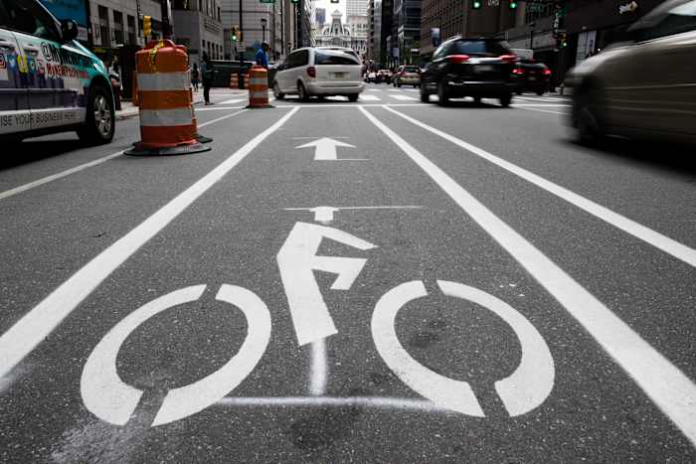CHICAGO – Hundreds of bicycle advocates were at an annual summit this month in Washington, D.C., when their cellphones lit up over breakfast with an urgent email warning that President Donald Trump’s transportation department had just halted federal grant funding for bike lanes.
As the administration targets green energy projects championed by former President Joe Biden that boosted transit, recreational trails and bicycle infrastructure, several states are banding together to advance those priorities on their own.
Recommended Videos
California, Illinois, Maryland, Michigan, Minnesota, New York and Pennsylvania joined forces for a national organizing effort dubbed the Clean Rides Network. The group gained momentum in various statehouses this year on environmentally friendly transportation projects it contends the federal government has abandoned.
“These are changes we need to make anyway, but they’re more urgent than ever,” said Justin Balik, senior state program director for the environmental advocacy group Evergreen Action and one of the organizers of the Clean Rides Network. “I’ve been calling the state departments of transportation the next frontier of climate advocacy.”
Trading highway expansion for buses
Although Colorado wasn’t among the seven charter members of the Clean Rides Network, a policy enacted there set the framework for one of its most ambitious goals.
In 2021, Gov. Jared Polis committed to a dramatic reduction in Colorado’s greenhouse gas emissions and employed a novel approach to accelerate the timeline. Whenever the state’s transportation department commits money to a large-scale project that increases vehicle traffic such as a new highway, it must also pursue a corresponding project to offset the environmental harms.
Two major highway expansion projects were canceled because of the policy, said Matt Frommer of the Southwest Energy Efficiency Project. The group advocated for the change.
Colorado used the savings to expand an intercity bus service that has soared in popularity for urban residents and tourists traveling to ski resorts.
Polis’ vision lined up with the multimodal transportation aims under the $1.1 trillion bipartisan infrastructure law Biden signed that year. In the final months of Biden’s administration, the city of Denver won a $150 million federal grant to build a rapid transit bus line along one of its busiest corridors.
Frommer, a transportation and land use policy manager, said there are fears that states will now have to pursue projects like that on their own.
“If your state cares about climate change, you need to take the reins and step up and direct your transportation funds to projects that are going to reduce emissions,


